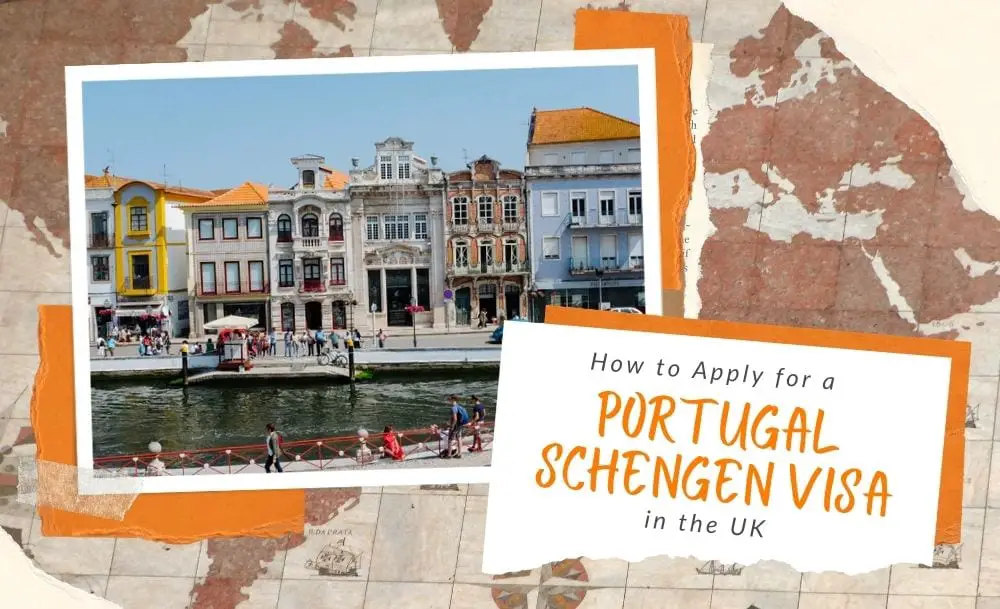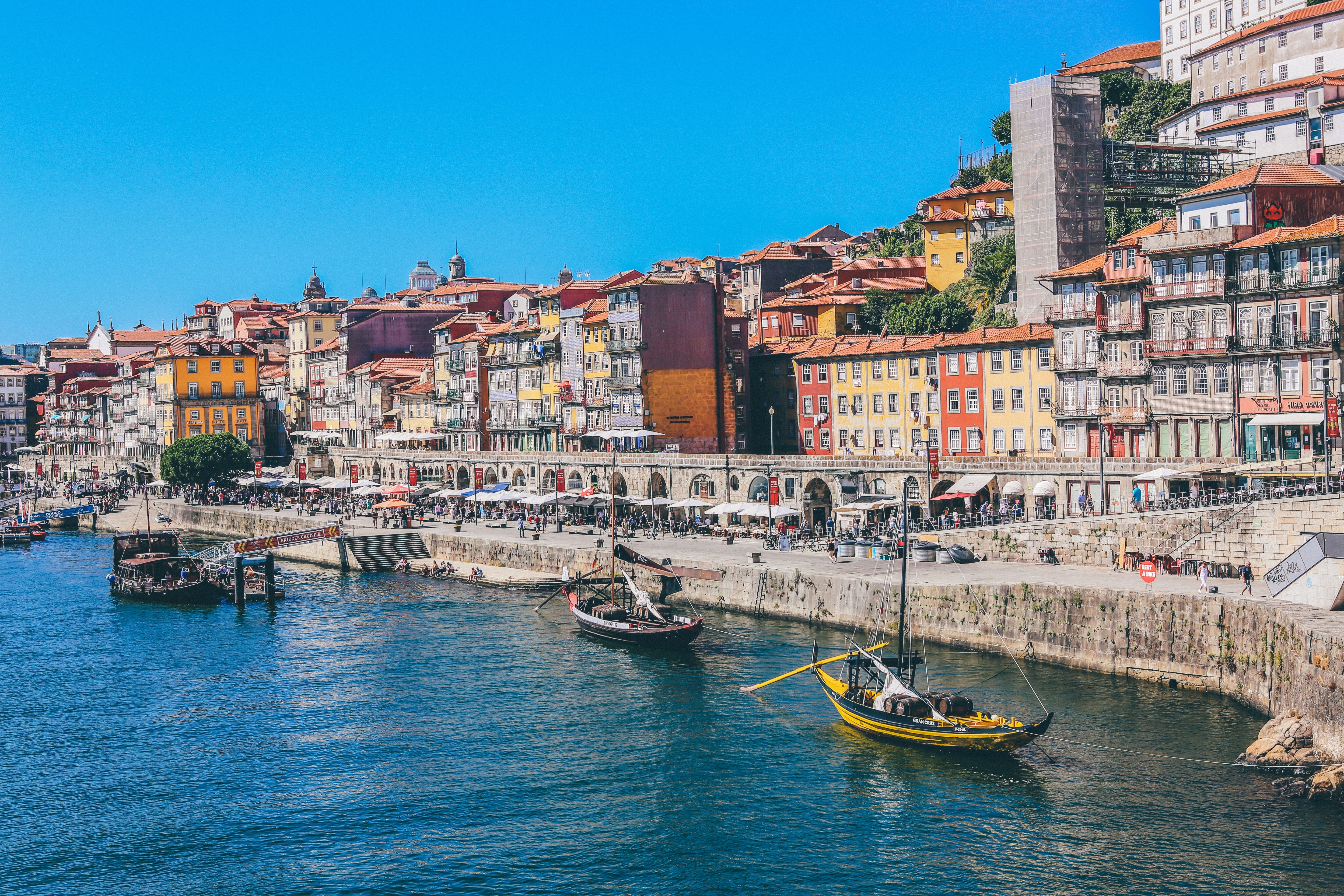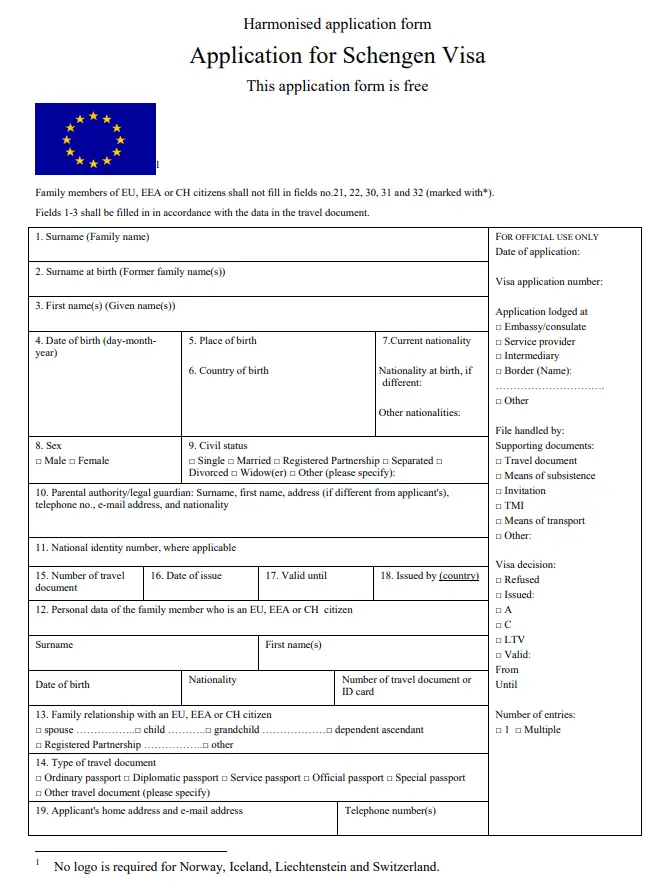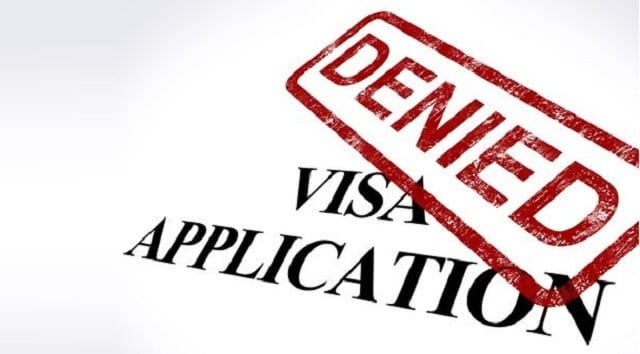How to Apply for a Portugal Schengen Visa for UK Residents

Like the Atlantic Ocean that laps upon its shores, Portugal throws one or two surprises. A rich and varied land of vibrant cities and traditional villages, stunning beaches, rolling countryside and a cornucopia of UNESCO World Heritage Sites, Portugal has so much to offer to the curious traveller.
For wine enthusiasts seeking the road less travelled, a drive through the Douro Valley is a must. Beach bums can spend their vacation soaking up the summer sun in the South, while dining on fresh fish plucked straight from the clear blue waters of the Mediterranean.

The old and the new collide in a mish-mash of culture and design on the streets and meeting squares, or pracas, of Lisbon. Flanked by the Douro River, the medieval capital of the north, Porto offers any history buff a plethora of sightseeing opportunities.
If you are planning for an exhilarating & revitalizing family vacationing with your loved ones, probably, Portugal is the ideal place to visit. To visit this astounding place, the very first thing you will need is to acquire a Portugal Schengen visa.
The Portugal visa permit not only allows you to visit Portugal but also to travel across other Schengen member states enlisted in the Schengen Zone as well as other countries.
Portugal Entry Restrictions in Response to Coronavirus

In early 2020, Portugal was among one of the Schengen countries that closed its borders in response to the COVID-19 pandemic. Portugal has since re-opened its borders back up for travel, but with restrictions that depend on your country of origin. The country, like most other Schengen countries, updates its restrictions regularly depending on the current situation.
Portugal has adopted its own national classification of risk areas. Travel restrictions for the country are not based on the “EU Traffic Lights” map of other Schengen and EU countries.
You should check on the latest news regarding restrictions, quarantine or whether a test will be required either from reliable news sources, the Portuguese government website, or the UK government website one to two weeks before your trip to be aware of the latest requirements for travelling to Portugal.
EU Digital COVID Certificate
The EU Digital COVID Certificate, which will be available starting 1 July 2021, provides proof that a person has either:
- been vaccinated against COVID-19
- received a negative test result, PCR or rapid antigen,
- or has recovered from COVID-19
The EU Digital COVID Certificate grants travellers the same rights as vaccinated, tested or recovered citizens of the EU Member State they are visiting and allows travel into the EU.
Portugal is connected to the EU Gateway and is issuing and/or verifying at least one EU Digital COVID Certificate (COVID vaccination, COVID recovery, or COVID test).

Entry to Madeira and Porto Santo
Before you arrive in Madeira and Porto Santo:
- Complete and submit a traveller questionnaire 12-48 hours before departure.
- Upload proof of your negative COVID-19 test, carried out 72 hours before departure.
On arrival, you will be subject to health screening. If you have not uploaded your COVID-19 test result, you will be asked to show it at the airport. If you do not have proof of a COVID-19 test, you will have to take a test at the airport and self-isolate at your accommodation until the results are known. This will take about 12 hours.
For further information, see the Madeira Tourist Board’s information for visitors.
Entry to the Azores
If you are travelling to the Azores, you need to complete and submit a health form 72 hours before you travel. After you have completed the form, you will receive a code for presentation to the health authorities on arrival. If you have not completed the form online, you will be asked to fill in a form manually at the airport.
On arrival, you will be subject to health screening. You will need to:
- Show proof of a negative COVID-19 test carried out 72 hours before departure, or
- Take a test on arrival and self-isolate at your accommodation until the results are known
If you are staying for more than 7 days, you will have to repeat the test locally 6 days after the first test.
If you cannot fulfil the entry requirements, you will be required to return to your country of origin. You will have to self-isolate at your accommodation until the time of your return flight.
For further information, see the Regional Government’s guidelines for safe travel.

Who needs a visa to travel to Portugal from the UK?
Travelling to Portugal for EU/EEA Citizens
Portugal is a Schengen country, which allows for free movement between the 26 EU and EFTA states (Iceland, Norway, Liechtenstein, and Switzerland). A uniform Schengen visa issued by one of the Schengen states is valid for travel within the whole Schengen area.
Travelling to Portugal Post-Brexit for UK Citizens
The rules for travelling or working in European countries changed on 1 January 2021:
- you can travel to countries in the Schengen area for up to 90 days in any 180-day period without a visa as a tourist, to visit family or friends, to attend business meetings, cultural or sports events, or for short-term studies or training
- if you are travelling to Portugal and other Schengen countries without a visa, make sure your whole visit is within the 90-day limit. Visits to Schengen countries within the previous 180 days before you travel count towards your 90 days
- for long-stay visits, to work or study, for business or for other reasons, you will need to meet the Portuguese government’s entry requirements.
- if you stay in Portugal with a residence permit or long-stay visa, this does not count towards your 90-day visa-free limit
At Portuguese border control, you may need to use separate lanes from EU, EEA and Swiss citizens when queueing. Your passport may be stamped on entry and exit. You may also need to:
- show a return or onward ticket
- show you have enough money for your stay
There are separate requirements for those who are residents of Portugal. If you are resident in Portugal, you should carry proof of residence as well as your valid passport when you travel. You should also check your passport’s validity when you travel and renew it if you don’t have enough time on it. Your passport must be:
- valid for at least 3 months after the day you plan to leave Portugal or any other Schengen country
- less than 10 years old
Travelling to Portugal for Other Third-Country Citizens
Citizens of the following countries residing in the UK and planning to visit Portugal are required to get a Portuguese visa in order to be able to enter Portugal.
[su_tabs][su_tab title=”A-C”][su_table]| Afghanistan | Algeria | Angola |
| Armenia | Azerbaijan | Bahrain |
| Bangladesh | Belarus | Belize |
| Benin | Bhutan | Bolivia |
| Botswana | Burkina Faso | Burma/Myanmar |
| Burundi | Cambodia | Cameroon |
| Cape Verde | Central African Republic | Chad |
| China | Comoros | Congo |
| Cote D'iviore | Cuba |
| Dem. Rep. Of Congo | Djibouti | Dominican Republic |
| Ecuador | Egypt | Equatorial Guinea |
| Eritrea | Ethiopia | Fiji |
| Gabon | Gambia | Ghana |
| Guinea | Guinea-Bissau | Guyana |
| Haiti | India | Indonesia |
| Iran | Iraq |
| Jamaica | Jordan | Kazakhstan |
| Kenya | Kosova | Kuwait |
| Kyrgyzstan | Laos | Lebanon |
| Lesotho | Liberia | Libya |
| Madagascar | Malawi | Maldives |
| Mali | Mauritania | Mongolia |
| Morocco | Mozambique | Namibia |
| Nepal | Niger | Nigeria |
| North Korea | Northern Mariana's | Oman |
| Pakistan | Papua New Guinea | Philippines |
| Qatar | Russia | Rwanda |
| Sao Tome And Principe | Saudi Arabia | Senegal |
| Sierra Leone | Somalia | South Africa |
| Sri Lanka | Sudan | Suriname |
| Swaziland | Syria | Tajikistan |
| Tanzania | Thailand | Timor-Leste |
| Togo | Tonga | Tunisia |
| Turkey | Turkmenistan | Uganda |
| Uzbekistan |
| Vietnam | Yemen | Zambia |
| Zimbabwe |
The main requirement if you want to apply from the UK is that you must have a UK residence permit valid for at least another three more months beyond the date you plan to leave Portugal/the Schengen Area.
Before starting a visa application, or getting a flight to Portugal, make sure to check whether you need a visa to Portugal or not.
If you have a 3-month UK visa you can extend it for three more months in order to be eligible to apply for a Portuguese Schengen visa from within the UK. You must apply for an extension before your visa expires and while you’re still in the UK.
Related articles:
- ETIAS – European Travel Information and Authorization System
- EU Settlement Scheme for Non-EU/EEA Family Members
- Brexit Reminder: Things that will change in 2021
Steps to Applying for a Portuguese Schengen Visa from the UK
Step 1: Know your visa type and validity
There are two types of Schengen visa that you can apply for and the one you need will depend on the duration of your trip and your reason for travelling to Iceland:
- Short-stay (Schengen) Visa – valid for up to 90 days (in a 180-day period) for the purposes of tourism, business, visiting family/friends, conference, EEA/EU national family member
- Residence and work permits (Long stays) – you should apply for this kind of visa if you want to live in Portugal for more than 90 days for employment, family reunification, study, research etc.
You will then be issued either a single entry, double-entry, or multiple-entry visa for up to 5 years based on the information you provide in your visa application.
It is important to choose the correct Schengen visa type to apply for depending on your trip so that you have the best chance of having your application approved. Find out more about the different types of Schengen visas in our blog post: Schengen Visa Types – All You Should Know When Applying for a Schengen Visa.
Step 2: Identify where to make application
To apply for a Portuguese Schengen visa, you must book an appointment with the Portuguese Embassy in London. This can be done in two ways:
- through services like the one offered by IAM that can prepare your visa for you
- through VFS Centres
All applicants (including minors) are required to appear in person at the Embassy on the scheduled date of the appointment. Only children and persons who require assistance are allowed to be accompanied to the application center.
Step 3: Complete your application form

The Schengen Visa application form contains questions about you including:
- Name and surname
- Date and place of birth
- Nationality
- Sex and marital status
- National Identity number
- Passport number
- Home address and email
- Purpose of trip
- Question regarding previous trips to Schengen, if any
- Intended date of arrival in Schengen area you are visiting, and the intended period of stay
- Cost of traveling and remaining in Schengen area you are visiting, who will cover them, etc.
Make sure your answers are correct and that they comply with the information in the rest of the documents. Complete the form, print it twice, and sign both copies at the end.
Find out more about how to complete a Schengen visa application form in this blog post.
Step 4: Prepare your documents
The following list of documents are required in order to obtain a visa to Portugal in the UK:
- A valid passport or Travel document. Please make sure:
- Your passport has been issued within the previous 10 years,
- Your passport has 2 full blank pages, one for the visa stamp and an additional spare page,
- Your passport will be valid for at least three (3) months after the date you exit the Schengen Area.
- A valid UK residence permit or another form of Identity Card. The UK residency permit must be endorsed in the actual passport (or on a new biometric ID card)
- One application form filled out completely and signed by the applicant.
- One passport-sized photo, which must be glued to the application form. Applications with stapled photographs will be rejected.
- Biometric data (this requirement only applies if you haven’t provided biometric data within the last 59 months):
- Fingerprints (Note: Children under the age of 12 are exempted from providing fingerprints)
- A copy of the passport bio page where the photo is included.
- A cover letter explaining the purpose of the visit to the Schengen area
- Proof of travel arrangements:
- Round trip flight/travel reservations or
- other proof of intended transport and complete itinerary of your visit to Portugal (if the several Schengen States will be visited or if the trip covers the several Schengen States and non-Schengen countries).
- Travel Insurance stating that you are covered in case of a medical emergency and repatriation not just in Portugal but in the whole Schengen zone (minimum coverage of € 30,000).
- Holders of diplomatic passports and family members of EU/EEA citizens are exempted from providing proof of travel medical insurance
- Proof of accommodation in Portugal:
- Evidence of a hotel booking or rental agreement, or
- Invitation from your Portugal host (family member, friend) with a copy of their passport
- Proof of financial subsistence. You need 40€ per day spent in Portugal for your Portugal Schengen visa and must be able to provide an amount of 75€ when entering the country. You can prove this through:
- Original recent Bank Statement (covering the last 3 calendar months. The last transaction must be no more than 1 month old)
- Traveller’s Cheques
Note: Cash is not considered proof of financial subsistence.
Foreign nationals who can prove that their accommodation and food are covered during their stay in Portugal may not need to provide proof of financial subsistence.
Note: Photocopies of the original documents should also be submitted and documents should not be more than one month old.
The documents listed above are documents required in all cases, regardless of the purpose of your visit in Portugal.

Depending on your employment status, here is a list of additional documents that are required for your visa application:
For employees:
- Employment contract
- Current bank statement of the latest 6 months
- Leave permission from the employer
- Income Tax Return (ITR) form or Certificate of Income Tax deducted at the source of salary
For the self-employed:
- A copy of your business license
- Company bank statement of the latest 6 months
- Income Tax Return (ITR)
For foreign students in the UK:
- Proof of enrollment
- No-objection certificate from school or university
For retirees:
- Pension statement of the latest 6 months
If unemployed and married to an EU citizen:
- A recent (less than 3 months old) Confirmation of Employment letter from their spouse’s employer stating the position held within the company as well as the starting date,
- Spouse’s valid passport
- An officially translated marriage certificate. The translation must be in English or Portuguese and must be certified as a true copy by the Embassy of the country where the marriage took place or by the Legalization Bureau of the Foreign Office in the UK

Requirements for children under the age of 18:
Parents or an adult guardian are required to accompany their underage children at the application centre at the Embassy of Portugal in London. Also, minors who are granted a Portuguese visa are not allowed to travel to Portugal by themselves. They should be accompanied by an adult during their stay in Portugal.
Required documents for visa application for underage children
- Birth certificate
- Portugal's application form should be signed by both parents.
- A family court order, in cases where only one parent has full custody over the child.
- Certified copies of ID/passport of both parents
- A notarized parental authorization to travel to Portugal, signed by both parents/guardians, if the minor will be travelling alone with another person.
Step 5: Attend your appointment
The visa interview is a meeting between you and the consular officer/interviewer. During this interview, the consular officer will ask you several questions about you and your intended trip. You will also be submitting the required documents throughout the meeting, to the interviewer.
Sample Interview Questions
While there is really no exhaustive list of questions the Consular officer may ask, the following are some of the most common questions asked during a Schengen interview.

Trip
- What is the purpose of your trip?
- Why do you want to visit this country?
- For how long will you be travelling to this country/Schengen region?
- What Schengen countries are you planning to visit?
- When will you be travelling?
- Where will you stay?
- How will you travel from one place to another?
Family
- Are you married?
- How long have you been married?
- What does your husband/wife do?
- Do you have any children? How old are they? What do they do?
- Do you have any friends or family that live in Europe? If yes, when did you meet them last?
Work
- Where do you work?
- What does your company do?
- What is your profession?
- What is your role in the company?
- How many years of total experience do you have?
- For how long have you been employed with your current employer?
- For how long were you employed with your previous employer?
- Can you show me your company profile?
- How many people work in your company?
Finance
- Who will pay for your trip?
- What is your annual income?
- Do you pay income tax?
- How much will your trip cost?
- Can I see your tax returns?
Personal
- Where do you stay?
- What is your highest level of education?
Visa Fees for UK Residents
Since Portugal is a Schengen state, visa fees are the same as any other Schengen visa. These are the costs of a Portuguese Schengen Visa when applying from UK:
| Schengen Visa Category (by age) | Fee in UK Pound | Fee in Euro |
| Adult | 73 £ | 80 € |
| Child between 6-12 years of age | 36.5 £ | 40 € |
| Child younger than 6 years of age | Free | Free |
You will need to pay the fee either online if you are applying through a third-party company or in person during the interview.
Payments can be made in cash and by credit or debit card.
Also, the visa application fee is not refundable and does not guarantee that you will be granted a visa.
Visa fee exemptions
- Children younger than 6 years of age
- Spouse/family member of an EU/EEA national
- Researchers from third countries travelling for the purpose of scientific research
- Representatives of non-profit organizations aged 25 years or less participating in seminars, conferences, sports, cultural or educational events organized by non-profit organizations.
- Persons travelling for the purpose of study or educational training and are accompanied by teaching staff such as:
- School pupils
- Undergraduates and postgraduates
- Documents required for exemption: A letter from the school principal/dean that states that the trip is an obligatory part of the school/college programme.

Visa fee discounts
Besides children of ages between 6 and 12 these are two cases when applicants receive visa fee discounts (35 € or 29.70 £):
Nationals of countries (that have a visa facilitation agreement with the EU) that are granted visa discounts are:
- Armenia*
- Azerbaijan
- Bosnia and Herzegovina*
- Cape Verde Islands
- Georgia*
- Kosovo
- Montenegro*
- North Macedonia*
- Russian Federation
- Serbia*
- Ukraine*
*Note: This only applies to those nationals who do not hold a biometric passport.
Step 6: Receive your visa
Visa Application Processing Time in UK
You can apply for a Portugal Schengen visa 6 months before your planned trip. Depending on the nationality of the applicant, the processing time may take at least 15 days from the day of application. In some cases when required documents are missing from the application this process may take longer.
Therefore, to avoid unwanted complications, you are advised to make sure you provide all required documents and submit your application at least 3 weeks before you plan on leaving the UK.
Visa application decision:
- Approved – Once your visa is approved, it will be stamped in your passport. Make sure to carefully check the visa sticker to make sure everything is correct and exactly how you need it.
- Rejected – if your visa has been rejected, it would have been for a specific reason and you have the right to appeal.
Visa Application Rejection
There are a few common reasons why your visa application might be rejected. For example, if you provide illegitimate or insufficient documents, apply for the wrong type of visa, or fail your immigration interview.
If your visa application is rejected, you will not be refunded for your application. You will need to either appeal or file the application again. To avoid this hassle, make sure your documents are in order and you fill out the form correctly. With a service like IaM, we check your application before submission to ensure the highest possibility of having your visa application approved.

Common rejection reasons include:
- Marriage certificate missing – if you are applying for a visa for family reasons, you may have to prove family ties. This is why you must provide a marriage certificate
- You applied for the wrong visa – it is your responsibility to apply for the correct visa depending on how long you are going to Portugal for and your reason for travelling there
- It is not clear that you plan to return to the UK – it must be clear that you intend to return to the UK before the visa expires. If the visa staff have doubts about this, your visa will be rejected
- Purpose of your trip cannot be established – the reason why you are planning to go to Portugal must be made clear. You can do this by providing specific documents like a full itinerary, work contract or invitation letter etc.
What If My Portugal Schengen Visa Is Rejected?
If you receive a negative answer in your Portugal Schengen visa application, this does not mean you cannot ever travel to Portugal. In fact, you have two options.
- File an appeal for Portugal Schengen visa rejection if you believe that the decision to deny you a visa is unjust. You should have a strong basis for your complaint. You can appeal this decision by writing an appeal letter for a Portugal Schengen visa rejection.
- Reapply by correcting the mistakes you did in your previous application. Or improve your situation in order to comply with the eligibility criteria for a Portugal Schengen Visa.
Visa Extension
A person visiting Portugal on a Schengen visa is allowed by law to extend their visa if they have legitimate reasons. This could be either personal, professional, medical emergencies or any other. The decisions to approve a Schengen visa extension request are handled case by case.
The duration you are allowed to stay in the country is stated in your Schengen visa sticker. It is important not to overstay during your trip to Portugal or the rest of the Schengen Zone or risk facing penalties like a fine, deportation, being banned from travelling back to the Schengen Zone, and having difficulties in your future Schengen applications.
There are also cases when people do not get any penalties for overstaying, for example a child or a person that cannot travel without a caretaker because of an illness or disability or an unforeseen event that prevents you from leaving the country, like COVID-19.
Find out more about overstaying in the Schengen visa in our blog post.
Extension Process
The overall process of extending your Portuguese Schengen Visa will involve:
- Determining whether you have a justified reason to request for an extension
- Submitting all the necessary documents. These include a valid passport that has the Schengen Visa used to get in the Schengen area stamped in it, one passport-sized photo, proof of financial subsistence, Schengen Visa Insurance that covers the extension duration, and all the documents that justify your reason for an extension
- Paying visa fees where applicable
- Attending a visa interview if necessary
- Waiting for the approval
You must apply for a Schengen visa extension before it expires. It may take a few days to a month for the authorities to process your visa extension request, during which you are legally permitted to stay in the country where you applied for the Schengen Visa but cannot travel to other Schengen Countries.
If your visa extension request is approved, you can extend your stay in the Schengen Area until the visa validity.
If your visa extension application is rejected, you will have to leave the Schengen area in a day or two.
Contact Details for the Embassy of Portugal in London
Address: 11 Belgrave Square, London SW1X 8PP, United Kingdom
Telephone: +44 20 7235 5331
Fax: +44 20 7229 7221
Email: [email protected]
Hours: Monday to Friday: 9 am -1 pm and 2 pm – 5 pm
So, are you ready to make your Schengen visa application for Portugal? Comment below.
IaM can help with your visa application to the United States, the UK & other countries
If you need help with a US visa, a UK Visa, or visa to Europe, including help with appointment booking obligations, IaM can help. For more information and advice on US immigration, UK immigration law and US visa applications or if you need any help or assistance please, reach out to your Visa Coordinator at IaM.
- How to Apply for a Luxembourg Schengen Visa from the UK - 14 March 2025
- How to Apply for a Liechtenstein Schengen Visa from the UK - 13 March 2025
- Austria Schengen Visa Requirements for UK Residents - 11 March 2025









